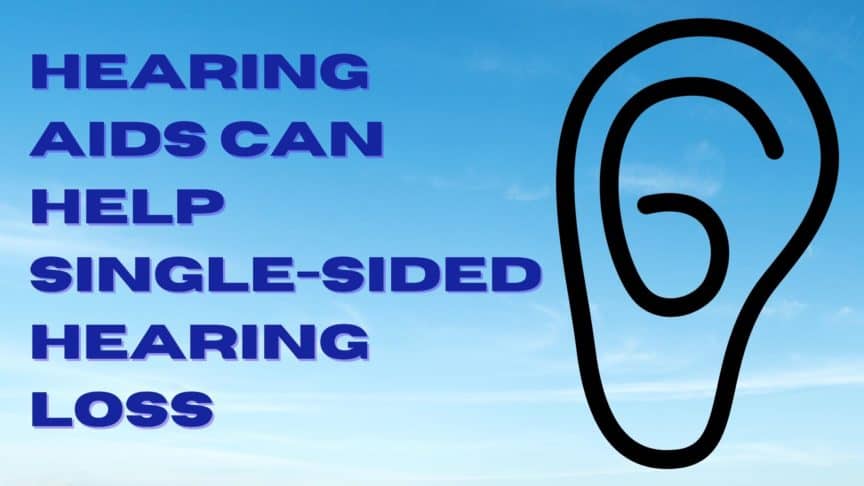Most of us hear binaurally, meaning we hear with two ears. This helps us locate the direction and proximity of sound as well as help us maintain our balance. While traditionally hearing aids are worn in both ears in rare cases hearing loss only affects one ear and not the other. This is known as unilateral hearing loss and can have a wide range of treatment options. For instance, for some cases hearing aids are not worn at all while in others a hearing aid is worn in the affected ear only.
Even so, this is very rare and if you have trouble hearing in one ear, there is a strong chance that hearing loss is present in the other, but not as pronounced. However, for those who truly do only suffer from hearing loss in a single ear, there are now hearing aids designed to balance sound on just the affected ear, keeping other important functions that rely on binaural hearing intact.
Single-Sided Hearing Loss
Often people have varying hearing loss in each ear, with one side more pronounced. In these instances, it is recommended to wear two hearing aids to balance out sound in order to emulate a more organic hearing experience. However, there are instances where hearing loss is single-sided, meaning it is only affecting one ear.
This can often be due to an ear injury or head impact on one side of the head. Other times it can be caused by a viral infection such as Meniere’s disease which manifests as a fullness of the ear which causes vertigo, dizziness and nausea as well as progressive hearing loss. In many instances when the hearing loss is conductive and caused by a blockage it can be reverted to normal hearing once the blockage has been cleared, such as in the case of some infections or a foreign object or bone abnormality.
However, if the inner ear is damaged the hearing loss is often permanent and is best treated with hearing aids.
Problems With Localization Caused By Single-Sided Hearing Loss
As explained earlier, binaural hearing is the use of two ears to not only hear effectively but to help in the localization of sounds. Localization allows us to be more aware of the distance, location, speed and proximity of sounds around us. When one ear is compromised due to a unilateral hearing loss it is all too easy to be confused with the location of a sound or miss it altogether if it is present on the side of the ear with hearing loss.
As you can imagine when the localization of sound is compromised due to untreated unilateral hearing this can quickly progress into a safety issue. Imagine driving a car or walking on a busy street and not being able to effectively identify the speed and proximity of sounds around you. This is one reason that people with hearing loss are at a much higher risk of falls, accidents and hospitalizations in comparison to people who treat their hearing loss.
Hearing Aids For Single-Sided Hearing Loss
Depending on the severity of your unilateral hearing loss there are different hearing aids available to help you hear clearly in crowds, out and about and at home. A CROS (contralateral routing of sound) system uses a single microphone and a single receiver. The CROS system uses two different devices worn in each ear. A microphone is worn in the ear with hearing loss, while a receiver is worn in the ear with healthy hearing.
The two devices are wireless so the sound delivered to the good ear can be sent to the ear with hearing loss. A BiCROS (bilateral microphones for contralateral routing of sound) system also uses two devices. However, a BiCROS system is prescribed for patients with a traditional “good ear”, even though both ears suffer from hearing loss. A microphone is worn in the ear with worse hearing while the other ear is fitted with a traditional hearing aid.
If you believe you are dealing with single-sided hearing loss, make an appointment to deal with this condition now before it starts to impact your safety and your quality of life. Contact us today!

